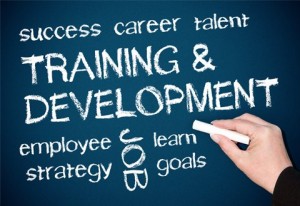Being an employee is not easy. There are a lot of things that one should be able to learn about a particular work. An employee has to master any and all necessary approaches in order to accomplish every activity included in in the job description. While being a common employee is indeed not an easy thing, being the person who handles employee-related matters can be more tedious.
Generally, such nature of work is in the hands of a company’s or business’ Human Resource Manager. As the term suggests, a person with such designation is typically in-charge of the almost all the concerns that has something to do with the workers.
An HR manager plays a big role starting from the recruitment or hiring of new employees to an employee’s exit from the company all the way to communicating with the previous workers for certain post-employment matters such as the final salary that one should receive, ‘separation pays’, as well as clearances.
For these reasons, an HR Manager should have the necessary knowledge and skills demanded by his/her job. If you are one of many people who are employed (or will be employed) as HR personnel, you should know about effective human resource management. Read on. Here are some of the most important principles of human resource management.
1.) Understand the nature of SHRM (Strategic Human Resource Management)
One thing is clear. There is no constant role when it comes to human resource management. It is always changing. In the past, HR is considered primarily as a support role. These days, HR has become a major strategic partner that helps in then attainment of goals of a company. When you talk about strategic approaches in HR management, it is beyond certain administrative tasks such as hiring of new employees or processing their payroll.
An HR manager has to perceive things more deeply and broadly focusing on how every employee will be able to take part in the success of the company.
The SHRM principle emphasizes that in order for an effective HR management to be obtained, other key components of the company has to collaborate with. Remember that SHRM is not only about HR department and its basic functions. Executives as well as all other managers should work in collaboration with the human resources department. Simply, this principle recognizes the vital part of people to the competitive advantage of the company.
2.) Understand that there is or will be a so-called ‘talent war’
If you have long been interested about HR-related matters, you probably have heard the term ‘talent war’. Basically, this reflects the competition between/among departments for the purpose of attracting and/or retaining the most viable employees.
As the one in-charge of HR concerns, you must be well-knowledgeable about what’s happening in each organization in the company. This is common in almost every workplace.
Finding the best talents fitted for any sort of job will be of great advantage both to particular department where the employee is designated, as well as to the company in general. Of course, the more skilled and talented employees are; the greater the opportunities of the company to achieve its goals are. This is why certain workers who are found incompetent for the job are terminated.
However, while talent war can be considered as a common phenomenon in a workplace, the HR manage should still be on track of what is really happening.
If you are the HR manager, you should bear in mind that even if in certain areas talent wars could help the company, there are also some drawbacks. In some cases when there is a fierce clash of extreme talents among departments in a company, the competition result to disunited work environment. At times, organizations and departments no longer maintain a clear perception of the company’s goals on a long-term basis.
Instead of working with each other, one works against the other(s). In his circumstance there is an obvious internal struggle, which will not be advantageous for the company. As the HR personnel, you must see to it that while competition of talents is going on among company departments, everyone still stick with the common goal—that what matters most is the realization of the company goals, which will in turn benefit all of them.
3.) Understand Pay Structure Concepts
Pay is the general term for the rewards that employees receive for services they rendered. Pays may include the base salary, hare ownership, variable pays, and many other benefits that a company provides. For example, a ‘bonus’ belongs to the classification of variable pay. Commonly, bonuses are awarded due to employees’ exceptional work performance.
Apart from this, there are also other monetary rewards that employees deserve.
Being the HR manager, you have to be knowledgeable about the pay structure that your company provides. You should know about the aspects that go along with direct pay, indirect pay, basic pay, incentive pay, bonuses, and stock options. You should also ensure that there is a fair awarding of these pays. It means that employees that really deserve to be rewarded (based on performance records) should receive their benefits. This way, you will be able to work both for the benefits of your c-employees and the company.
These are three of the most important principles of human resource management. Dig into them deeper and see how you will become the most effective HR manager and become an asset to a company.
FREE - Brilliant PPT Slides on HR Management x HR strategy. Download Free - NOW.




